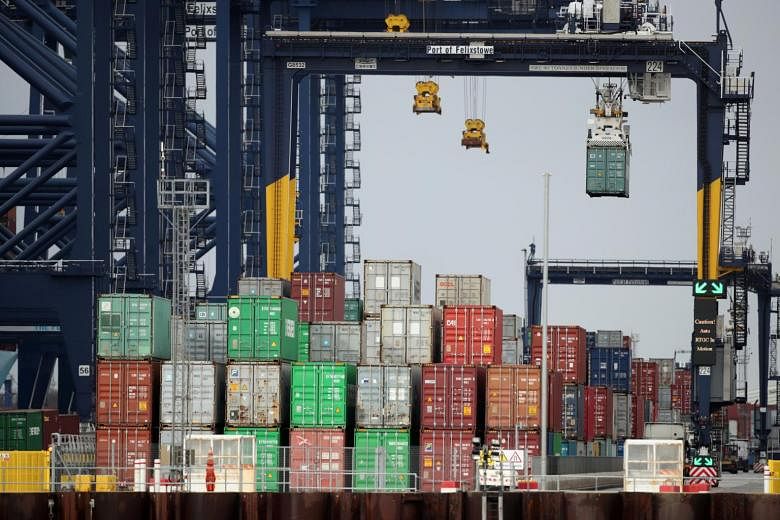LONDON (REUTERS) - Just under half of British companies that export goods have run into difficulties caused by the Brexit shift in trade terms with the European Union since the start of the year, a British Chambers of Commerce survey showed on Thursday (Feb 11).
Some 49 per cent of goods exporters said adapting to the changes had caused problems, while one in five services exporters reported issues, the BCC said.
The findings are in line with other surveys that show British companies struggled with supply chain issues last month, with the shift in trading arrangements exacerbating problems resulting from the Covid-19 pandemic.
"Trading businesses - and the UK's chances at a strong economic recovery - are being hit hard by changes at the border," said BCC director general Adam Marshall.
"For some firms these concerns are existential, and go well beyond mere 'teething problems'," added Marshall, repeating the phrase used by Prime Minister Boris Johnson to describe the recent trade problems.
Marshall warned that the situation could worsen if Britain sticks to its plan to introduce checks on live animals and animal products from the EU in April, and for full customs checks from July.
"These timescales need to change - and the support available for businesses who are battling to adapt to new trading conditions significantly increased," Marshall said.
Last week an HSBC UK survey showed 40 per cent of British importers and exporters said the shift to a new trading arrangement with the EU had made trade more cumbersome.
British manufacturers suffered the biggest deterioration in their supply chain out of almost 30 countries covered by IHS Markit's business surveys in January.
Trade analysts think some of the extra cost and bureaucracy will be permanent, and the Bank of England has forecast they will lower trade by 10 per cent in the long run compared with a frictionless arrangement.
Proponents of Brexit say Britain will ultimately benefit by striking its own trade deals and forming its own regulations outside the EU.

